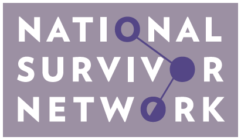April 14, 2023
Goldenberg S., Liyanage R., Braschel M., et al. Structural Barriers to Condom Access in a Community-Based Cohort of Sex Workers in Vancouver, Canada: Influence of Policing, Violence and End-Demand Criminalisation BMJ Sexual & Reproductive Health; 46:301- 307, (March, 2020). Available at: https://srh.bmj.com/content/46/4/301
Findings from Advocating Opportunity’s “END DEMAND LITERATURE – DESK REVIEW” (Compiled by: Emily Dunlap, Komal Hans, and Donna Hoffman with contributions from: Kate D’Adamo and Megan K. Mattimoe):
Summary:
“Given serious concerns regarding barriers to condom use, including policing, violence and ‘end- demand’ sex work criminalization, this study evaluated structural correlates of difficulty accessing condoms among SWs in Vancouver over an 8-year period. The findings of the study lead to the conclusion that under an end-demand model, there is difficulty accessing condoms and thus the risk of contracting HIV/STI is heightened.” “Despite the purported goal of ‘protecting communities’, end-demand criminalization does not mitigate barriers to condom access. At heightened risk of HIV are sexual/gender minorities, those facing workplace violence or harassment, and those who work outdoors due to their experiences of poor condom accessibility”. (emphasis added).
Findings:
“Among 884 participants, 19.1% reported difficulty accessing condoms during the study.” …[E]xposure to end-demand legislation was not associated with improved condom access; identifying as a sexual/gender minority… physical/sexual workplace violence… community violence, and police harassment were associated with enhanced difficulty accessing condoms.” “One-fifth of sex workers faced challenges accessing condoms, suggesting the need to scale-up sex worker-tailored HIV/STI prevention. Despite the purported goal of ‘protecting communities’, end-demand criminalization did not mitigate barriers to condom access, while sexual/gender minorities and those facing workplace violence, harassment or those who worked outdoors experienced poorest condom accessibility. Decriminalization of sex work is needed to support sex workers’ labor rights, including access to HIV/STI prevention supplies.”
Methodology:
“Baseline and prospective data were drawn from a community-based cohort of women sex workers (2010–2018). Sex workers completed semi-annual questionnaires administered by a team that included lived experience. Multivariable logistic regression using generalized estimating equations (GEE) modelled correlates of difficulty accessing condoms over time.”
Background:
“Sex workers (SWs) face a disproportionate burden of HIV/sexually transmitted infections (STIs), violence and other human rights violations. While recent HIV prevention research has largely focused on the HIV cascade, condoms remain a cornerstone of HIV prevention, requiring further research attention.”
